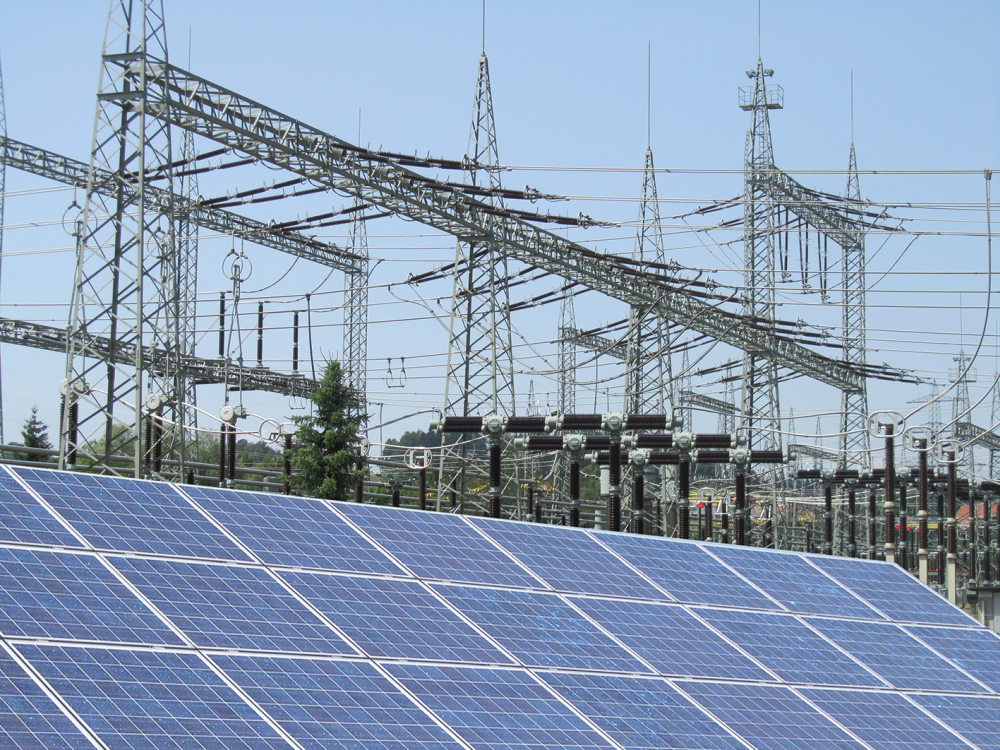| Duration: | 01/2023 - 12/2026 |
| Contracting Authority/Sponsors: | Federal Ministry of Economic Affairs and Climate Action (BMWK) |
| Project Partners: | Funded Partners: OTH Regensburg – FENES, TU Braunschweig – elenia, KBR Kompensationsanlagenbau GmbH Associated Partners: 50Hertz Transmission GmbH, E.DIS Netz GmbH, TEN Thüringer Energienetze GmbH & Co. KG, WEMAG Netz GmbH, BayWa r.e., SMA Solar Technology AG |
| Website: | Energienetze Q-REAL |
| Project Focus: |
Q-Real- Reactive Power Management in Real Application
Network Planning, Network Operation and Reactive Power Sources for Transmission and Distribution Networks
The increase in decentralised power generation as a result of the energy transition poses major challenges for grid operators. As the number of conventional power plants declines, transmission system operators have fewer plants to maintain voltage. At the same time, the share of renewable generation in the distribution grid, which can contribute to maintaining the grid voltage, is increasing. It is therefore clear that close cooperation between distribution and transmission grid operators will be required in the future to ensure voltage stability at all grid levels in the interest of the national economy, as well as the development of intelligent plant control concepts for the provision of reactive power.
In order to meet these challenges with regard to the complexity of reactive power management across voltage levels, the further development of the concepts from the Q-Integral project towards an automated, adaptive and resilient system requires comprehensive investigations from the component level via the planning level to the grid management level.
In this context, the cooperation partner OTH aims to investigate an overarching reactive power management using innovative control methods during the grid planning process. Field trials will be used to test the control and deployment strategies developed. Together with partner KBR, an industrial reactive power management system will be developed to provide the necessary reactive power for the distribution network. An application-oriented test will also be carried out on the basis of a field test with industrial partners.
The project objectives of the Elenia Institute are primarily concerned with the feasibility of the developed reactive power management system in grid management. In addition, a method will be developed to determine the electrical losses of renewable energy systems (RES) during the provision of reactive power.
Fraunhofer ISE is investigating the economic conditions of converter-based reactive power supply and its impact on grid stability and grid reactions.
- For this purpose, the developed concepts for reactive power supply are tested in field trials. The parameterisation of controllable EEAs of a parking system will be actively adapted and analysed by means of installed measurement technology.
- Furthermore, selected Q-sources, in particular grid forming converters (GFC), will be investigated in detail. Simulations will be used to investigate the boundary conditions for stable network management and the optimal positioning of GFCs in the transmission and/or distribution network. In addition, the harmonic load caused by the increasing integration of converter-coupled EEAs is evaluated with regard to the effects on equipment and protection systems.
- To assess the economic impact in larger grid areas, the ageing effects of converters during reactive power supply will be quantified by laboratory tests and general electrical loss models of wind, battery and PV converters will be developed.
